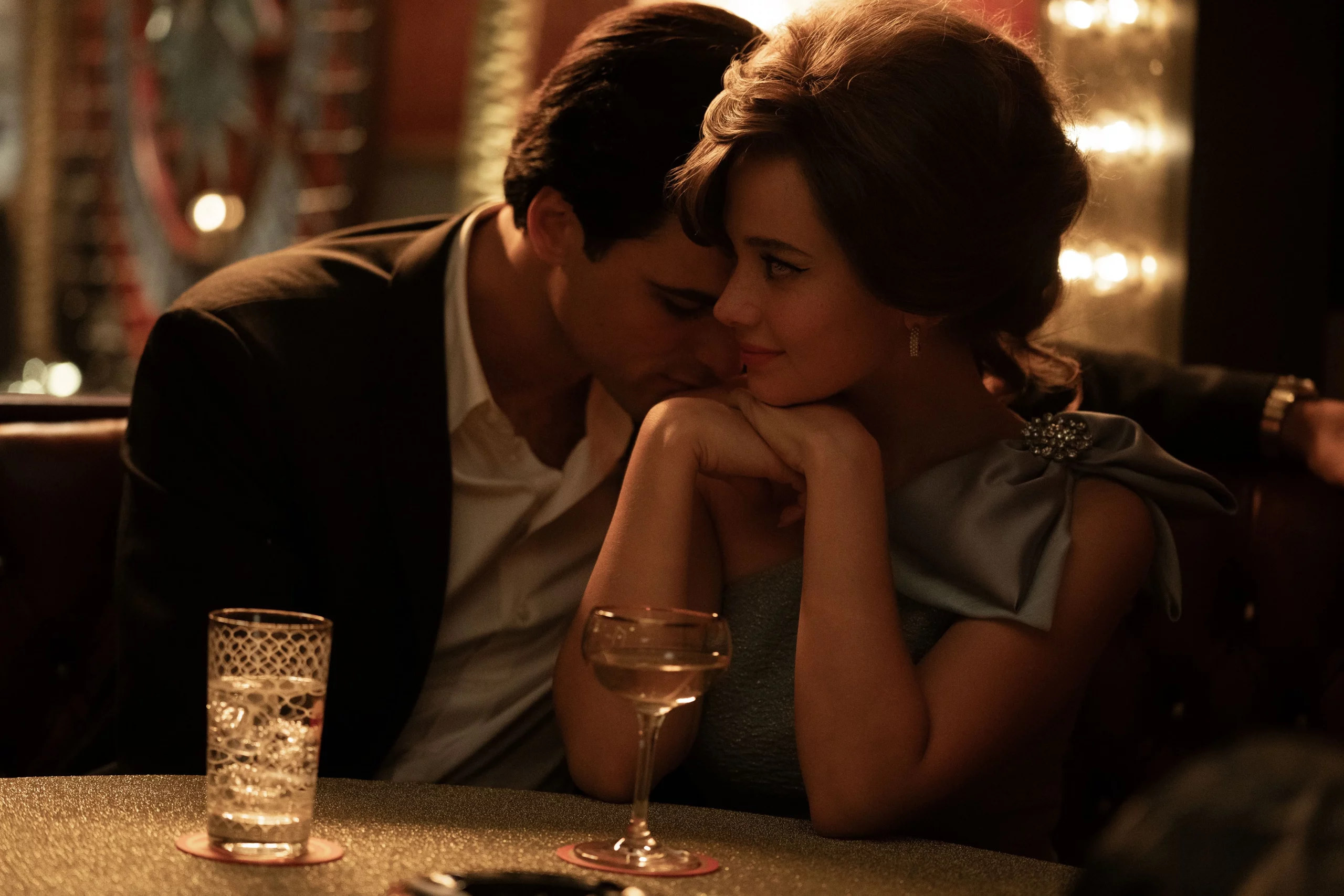
Film Review: Priscilla
Film Reviews
Priscilla
Director: Sofia Coppola
American Zoetrope
In Theaters: 11.03
While I thoroughly enjoyed Baz Luhrman’s Elvis, the sugar-coated version of the King’s life didn’t merely sanitize the story of his marriage, it glossed over it almost entirely. Priscilla is a chance to correct that injustice, and sadly, it’s a largely missed opportunity.
In 1959, 14-year-old Priscilla Beaulieu (Cailee Spaeny, Pacific Rim: Uprising, Mare of Easttown) is living in Germany near the military base where her Air Force colonel father is stationed. When she is invited by young officer Terry West (Luke Humphrey, I Was Lorena Bobbitt) to a party at the home of the most famous soldier in all of Europe, Elvis Presley (Jacob Elordi, Euphoria), it’s a dream come true. After West persuades Priscilla’s parents to let her attend the party, she finds herself face-to-face with the superstar, who takes an instant shine to her. Before long, Priscilla is spending all of her free time with Elvis as he grooms her to be his companion until they finally marry when she is 21. The course of true love never did run smooth, however, and their controlling relationship comes at the cost of Priscilla’s youth and freedom.
Priscilla, which is based on the memoir Elvis and Me by Priscilla Presley and author Sandra Harmon, is a more honest portrayal of this toxic and doomed relationship than we’ve seen recently, though it’s nothing new to anyone who ever so much as glanced at the dust jacket of the book. Writer and Director Sofia Coppola’s ethereal approach to storytelling means that I tend to leave most of her films feeling like I was peering in from the outside in an almost voyeuristic fashion. While this approach is exactly what made The Virgin Suicides so compelling in 1999, in the case of Priscilla, it left me feeling frustratingly bereft of any new insights intothese famous figures. The real Priscilla is an executive producer, which made the film feel like a cherry-picked series of only the stories that she wants told, and it comes out more like a warts-and-all look at Elvis from the point of view of the teenager who fell for him rather than an exploration of the woman herself.
Priscilla, her parents and others frequently ask the question “Why her?” when Elvis could seemingly have any woman he wants, and the film never overcomes the feeling that it was made from that perspective. The final section, when Priscilla finally discovers a need for a life of her own, is rushed through as quickly as possible for fear that we’ll grow bored if too much time is spent without Elvis on screen. The result is a movie about Priscilla learning to define herself by her own identity rather than as Elvis’s wife, a role that keeps her so much in her husband’s shadow that at times she’s barely even visible.
Spaeny convincingly plays Priscilla from ages 14 to 28, and it’s a memorable performance, even if the script doesn’t afford the character much depth. Elordi is put in the unenviable position of following Austin Butler‘s star-making performance last year, and while he never embodies the legend the way that Butler did, he still delivers a credible and committed performance that doesn’t rely nearly as much on mere charisma. The two actors do everything they can to make the movie soar, but there are only so many variations of the same scene that can be endured in a row: Elvis takes drugs and seduces Priscilla with his charms, while she refuses to have sex until marriage.
Priscilla works well enough as an addendum to Luhrman’s story of Elvis as the victim, giving audiences a necessary glimpse at him as a victimizer in his own right. It’s just a shame that while the film succeeds in presenting the truth that Priscilla was only a kid caught in a crazy situation, it never quite moves past its fixation on the word “only” to give the person who has the strength to leave Graceland her due. –Patrick Gibbs
Read more from Patrick Gibbs:
Film Review: Killers of the Flower Moon
Film Review: Pain Hustlers
